Turn your students into interior designers with this inquiry-based math project based on drawing and measuring angles.
Get Your Students Designing A Room!
Mathematics is not confined to textbooks and classrooms… it’s an integral part of our daily lives! What better way to show your students how their mathematical knowledge can be applied to the real world than with an open-ended maths investigation using angles.
This inquiry-based angles project has been designed by our experienced team of teachers to help bridge the gap between abstract mathematical concepts and their practical applications. Students are required to design a room using different types of angles. Through planning and designing their room, students have the opportunity to harness their creativity while demonstrating their knowledge of drawing and measuring angles using a protractor.
Throughout the investigation, the students will:
- Plan their ideal room using different types of angles. They must use at least five different angle measurements from the list provided to create their room.
- Draw their room design, being sure to use a protractor to measure each angle they draw, and labeling each angle on the design plan.
- Add other items they would like to have in their room, e.g. bed, desk, TV, etc.
- Answer the reflection questions provided.
You’ll find everything you need to implement this angles project in the comprehensive student workbook. The workbook contains the following:
- Teacher instructions
- Student instructions
- Various planning worksheets and templates
- Reflection questions
- A sample marking rubric
This design-a-room project downloads as a print-and-go PDF or an editable Google Slides file.
This student-centered math project would make the perfect summative assessment task for any unit on drawing and measuring angles. Students will love taking control of their learning by personalizing their room in accordance with their own unique preferences!
Differentiate This Math Project
One of the major benefits of open-ended tasks such as this angles math investigation is that they provide wonderful opportunities for differentiation, enabling students to feel confident and successful as they engage with tasks at their own individual level. If you’re looking for additional opportunities to cater this activity to your students’ specific learning needs, here are some ideas from our expert teacher team:
- Simplify the Requirements – Some students may feel overwhelmed by the prospect of using at least five different angle types to create their room. Set these students up to succeed by reducing the number of required angle types to two or three, such as right angles and straight angles. If the students are feeling confident with these basic angle types, go ahead and add an additional angle type, such as acute or obtuse angles.
- Write Some Word Problems – Word problems are excellent tools for promoting critical thinking and logical reasoning. Have your more-capable students write a series of word problems based on their room design. Make sure the students understand that one of the requirements is also to create an answer key for whatever questions they create!
Download This Design-a-Room Math Project
Use the dropdown menu on the Download button above to access the PDF or editable Google Slides file. (Note: You will be prompted to make a copy of the Google Slides template before accessing it).
For sustainability purposes, please consider printing this workbook double-sided.
This resource was created by Michael Bailey, a teacher in New York and a Teach Starter collaborator.
More Teacher-Made Angles Activities
Looking for more angles activities to excite your learners? Explore this great selection of teacher-created resources!
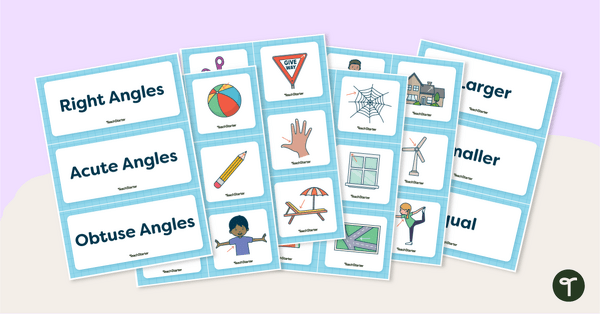
teaching resource
Classifying Angles – 4th Grade Sorting Activity
Help students recognize different types of angles in everyday life with this hands-on sorting activity.
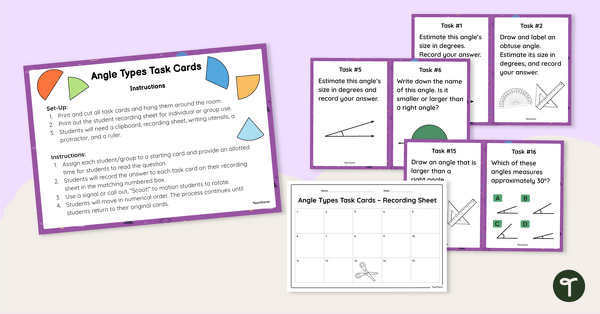
teaching resource
Types of Angles Task Cards
Explore the main types of angles with this set of 24 task cards.
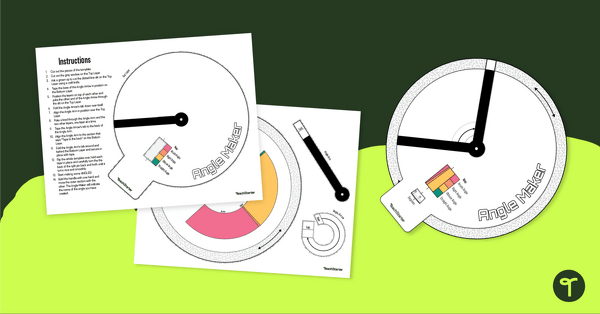
teaching resource
Angle Maker Template
Create and classify different angles with this hands-on printable template.
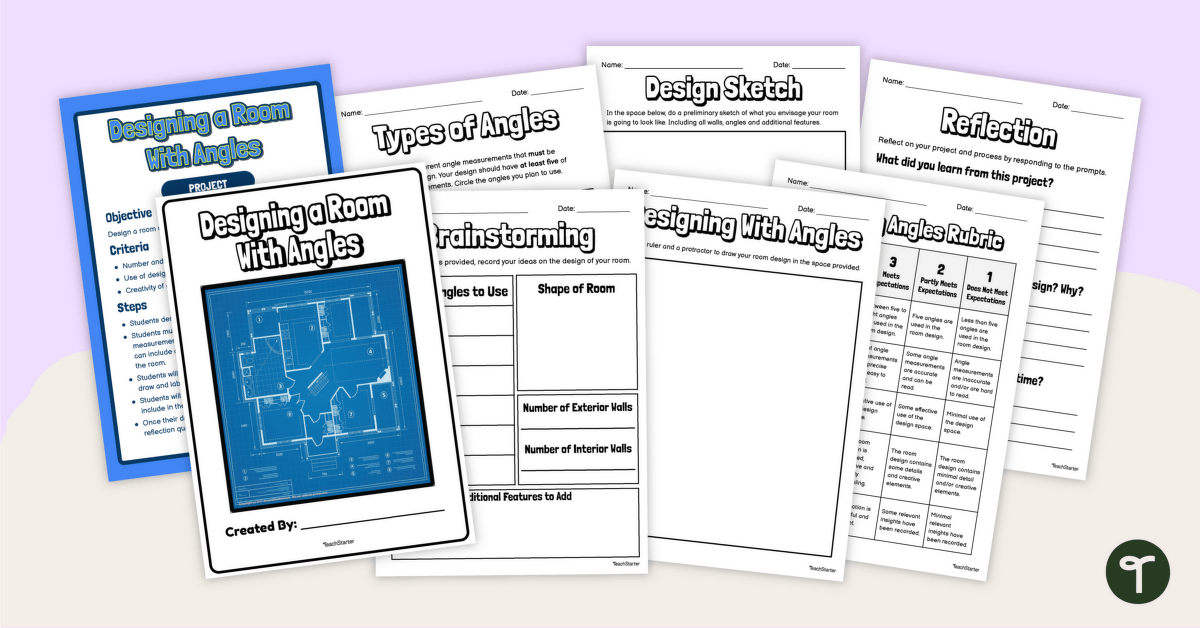

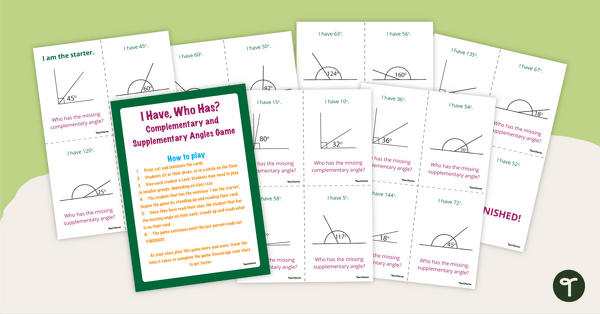
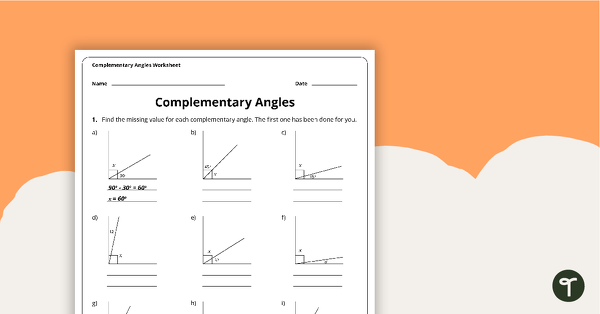
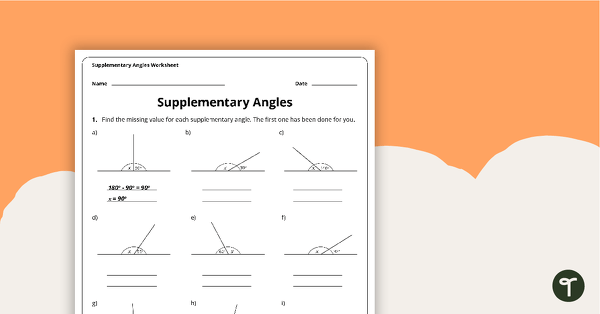
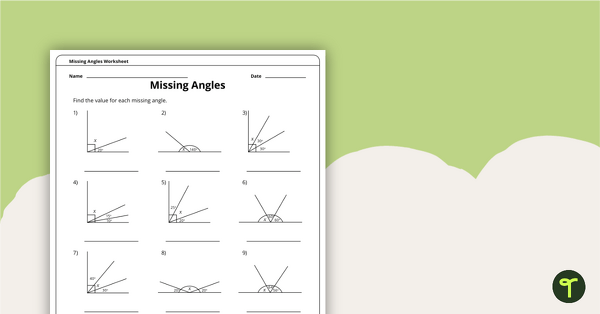
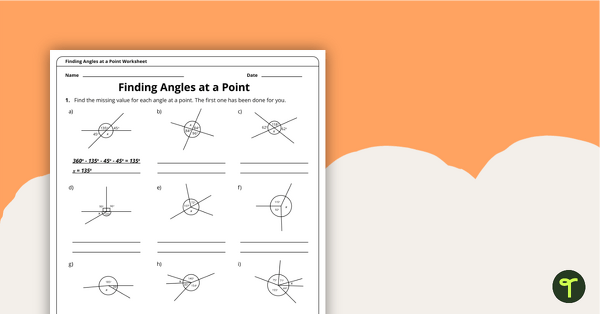
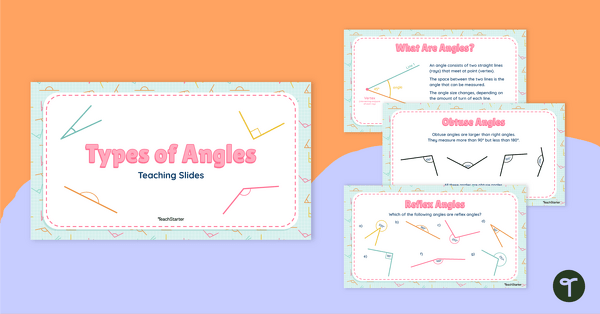
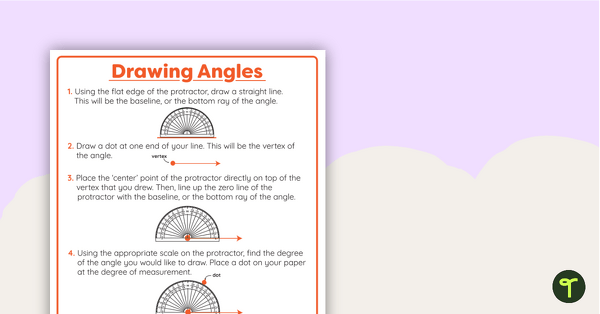
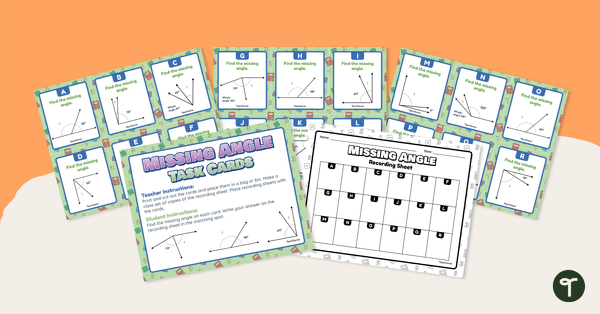
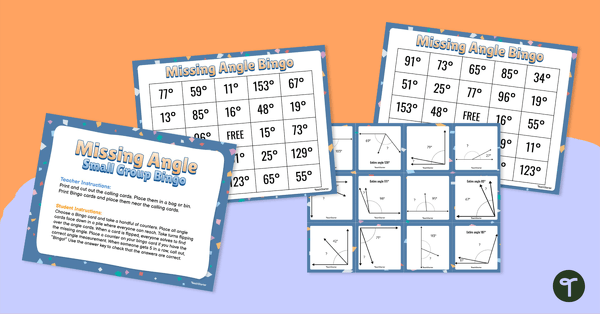
0 Comments
Write a review to help other teachers and parents like yourself. If you'd like to request a change to this resource, or report an error, select the corresponding tab above.